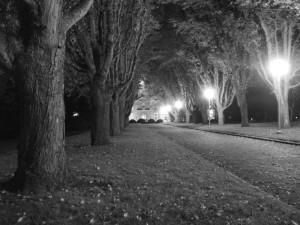On September 26, a female student was sexually assaulted on the University of Victoria campus. In light of this, Camosun College has undertaken a review to uncover any and all reports of sexual assault either on campus or at college-sanctioned events.
“According to our campus security office records, Camosun College received no sexual assault reports during the 2014 calendar year,” says Camosun director of student services and registrar Nichole Greengoe.
Greengoe says the risk of on-campus sexual assault is noticeably lower on a college campus such as Camosun due in part to a lack of on-campus residencies and significant late-night activities.

She also lists infrequent and restricted service of alcohol on campus as another factor of decreased risk.
Unfortunately, there are barriers to reporting a sexual assault. According to Greengoe, shame, stigma, and fear of engaging in the process are three common reasons for not reporting. Greengoe also highlights the fear of not being believed and concerns regarding confidentiality as being significant. According to Statistics Canada, 91 percent of sexual assaults are not reported to the police.
Camosun does not have a specific sexual assault policy. Acceptable behaviour on campus and at college events is outlined in Camosun’s Student Conduct Policy, Code of Conduct Policy, and Respectful Workplace Policy. All three documents can be found at camosun.ca.
Camosun has taken steps to protect students from sexual assault both on and off campus. There are Emergency Blue Phones located around both the Lansdowne and Interurban campuses; the phones immediately connect with emergency responders.
“Camosun also keeps an ombudsperson on campus as a point of contact for students in need of assistance in any way,” says Greengoe.
There is also the Walk Safer program. “We partner with the Camosun College Student Society to offer evening campus patrols and escorts throughout the academic year to walk students and staff to their cars. Volunteer Walk Safer escorts are screened with a criminal record check and complete a training session,” says Greengoe.
The Peer Connections program group receives a four-hour training session on healthy relationships and consent delivered by agents of the non-profit group Project Consent. There is also a free on-campus counselling service available for all students, including those who are survivors of sexual assault. Camosun counsellors are knowledgeable about all community resources and supports that may be available to sexual assault survivors.
Second-year Pre-Social Work and University Transfer student Amanda Houniet says she feels safe on campus due to the large amount of people here. However, she says she feels safer during the day than at night, and stresses the importance of lights on campus for maintaining a sense of security at night.
“Normally, the campus is pretty boomin’,” she says. “There are a lot of people around.”
